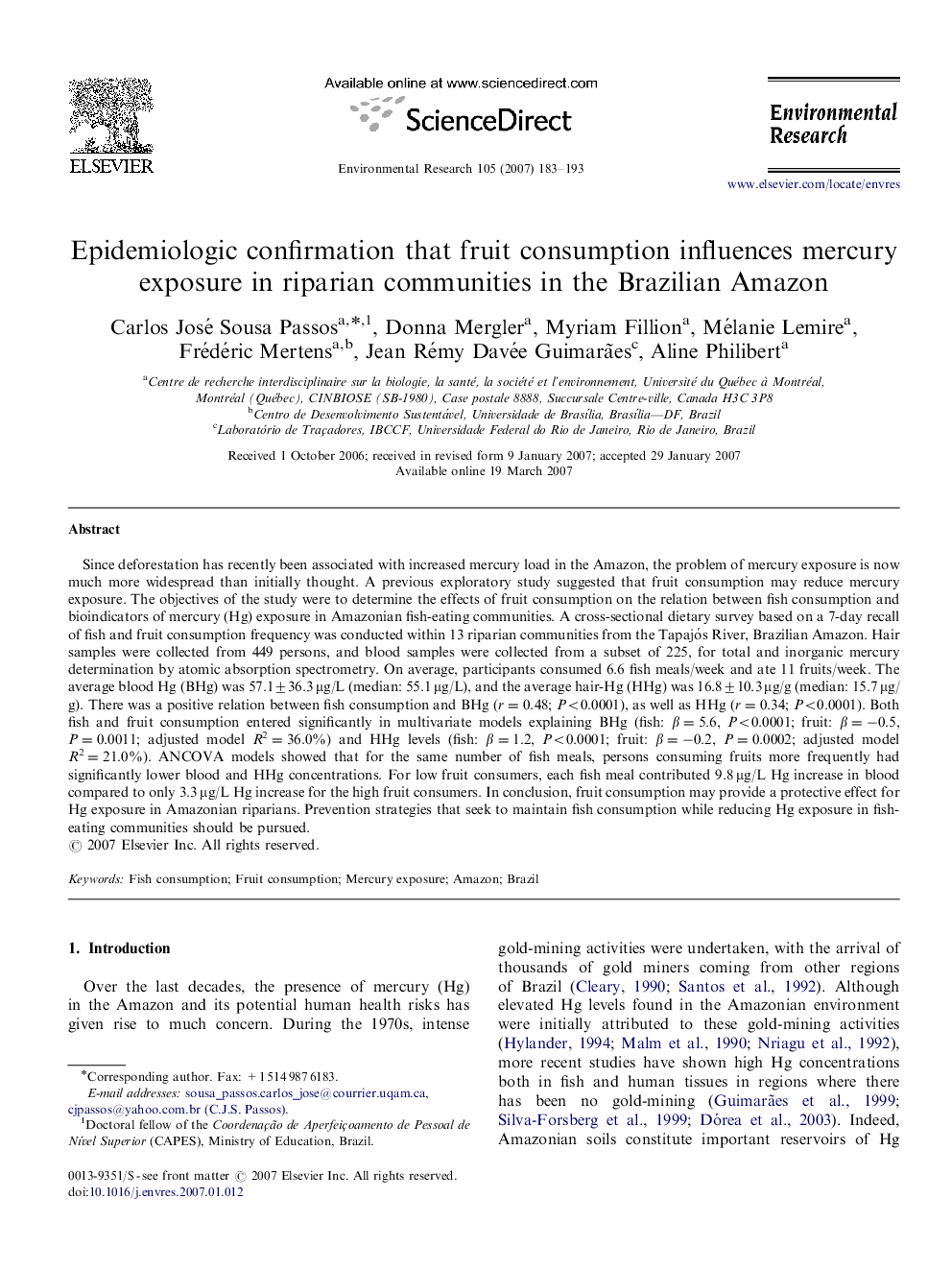| Article ID | Journal | Published Year | Pages | File Type |
|---|---|---|---|---|
| 4470460 | Environmental Research | 2007 | 11 Pages |
Since deforestation has recently been associated with increased mercury load in the Amazon, the problem of mercury exposure is now much more widespread than initially thought. A previous exploratory study suggested that fruit consumption may reduce mercury exposure. The objectives of the study were to determine the effects of fruit consumption on the relation between fish consumption and bioindicators of mercury (Hg) exposure in Amazonian fish-eating communities. A cross-sectional dietary survey based on a 7-day recall of fish and fruit consumption frequency was conducted within 13 riparian communities from the Tapajós River, Brazilian Amazon. Hair samples were collected from 449 persons, and blood samples were collected from a subset of 225, for total and inorganic mercury determination by atomic absorption spectrometry. On average, participants consumed 6.6 fish meals/week and ate 11 fruits/week. The average blood Hg (BHg) was 57.1±36.3 μg/L (median: 55.1 μg/L), and the average hair-Hg (HHg) was 16.8±10.3 μg/g (median: 15.7 μg/g). There was a positive relation between fish consumption and BHg (r=0.48; P<0.0001), as well as HHg (r=0.34; P<0.0001). Both fish and fruit consumption entered significantly in multivariate models explaining BHg (fish: β=5.6, P<0.0001; fruit: β=−0.5, P=0.0011; adjusted model R2=36.0%) and HHg levels (fish: β=1.2, P<0.0001; fruit: β=−0.2, P=0.0002; adjusted model R2=21.0%). ANCOVA models showed that for the same number of fish meals, persons consuming fruits more frequently had significantly lower blood and HHg concentrations. For low fruit consumers, each fish meal contributed 9.8 μg/L Hg increase in blood compared to only 3.3 μg/L Hg increase for the high fruit consumers. In conclusion, fruit consumption may provide a protective effect for Hg exposure in Amazonian riparians. Prevention strategies that seek to maintain fish consumption while reducing Hg exposure in fish-eating communities should be pursued.
